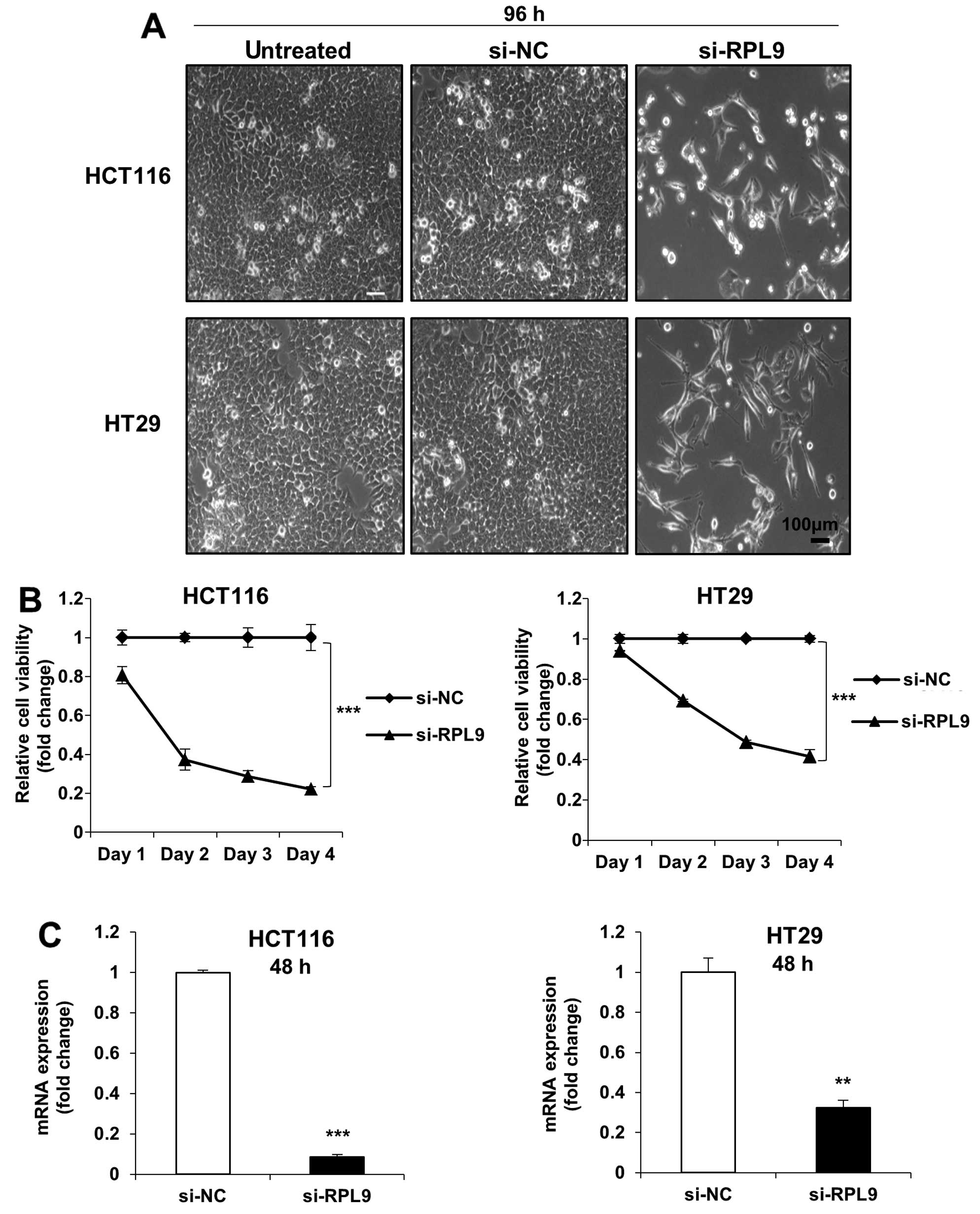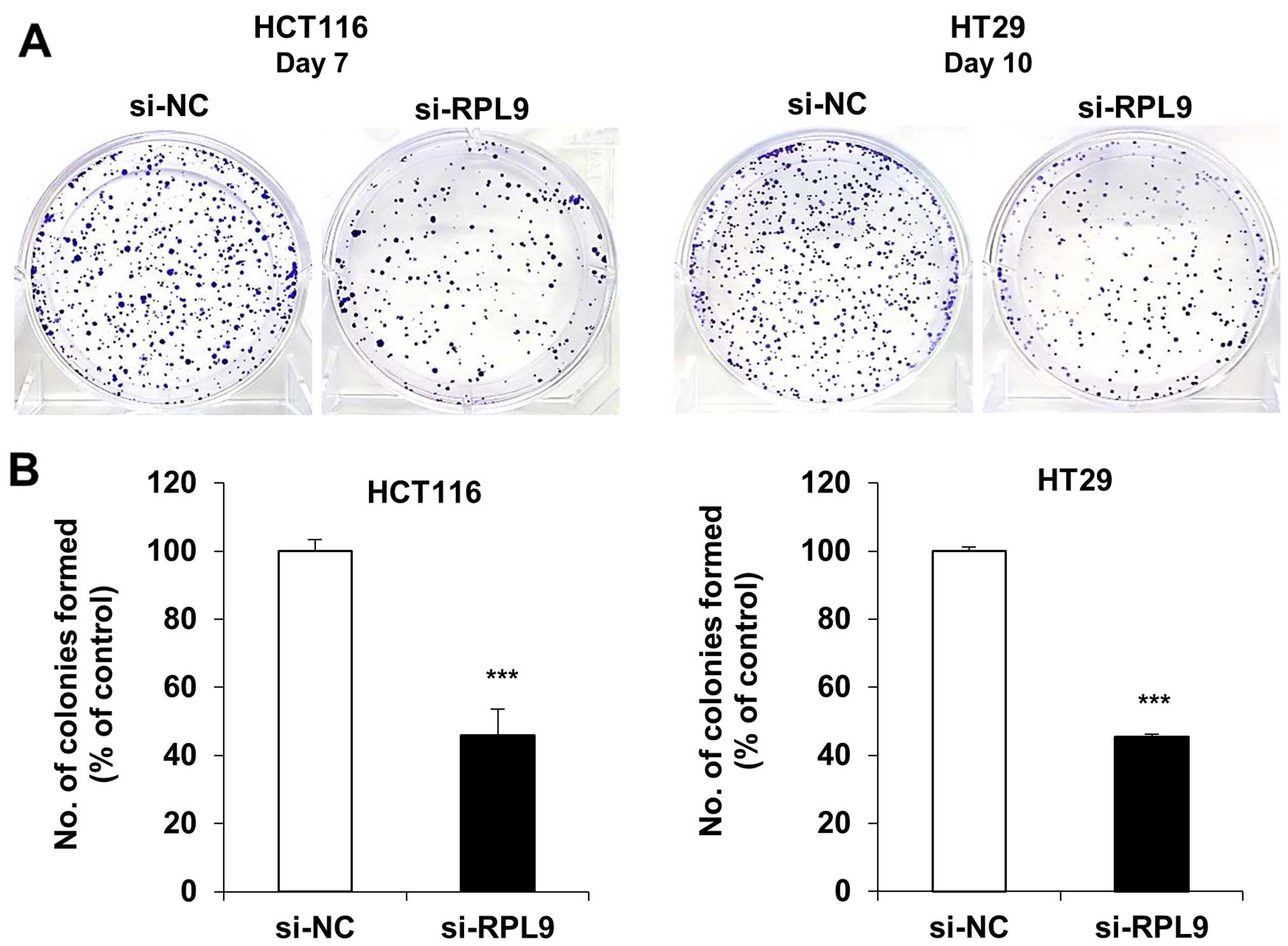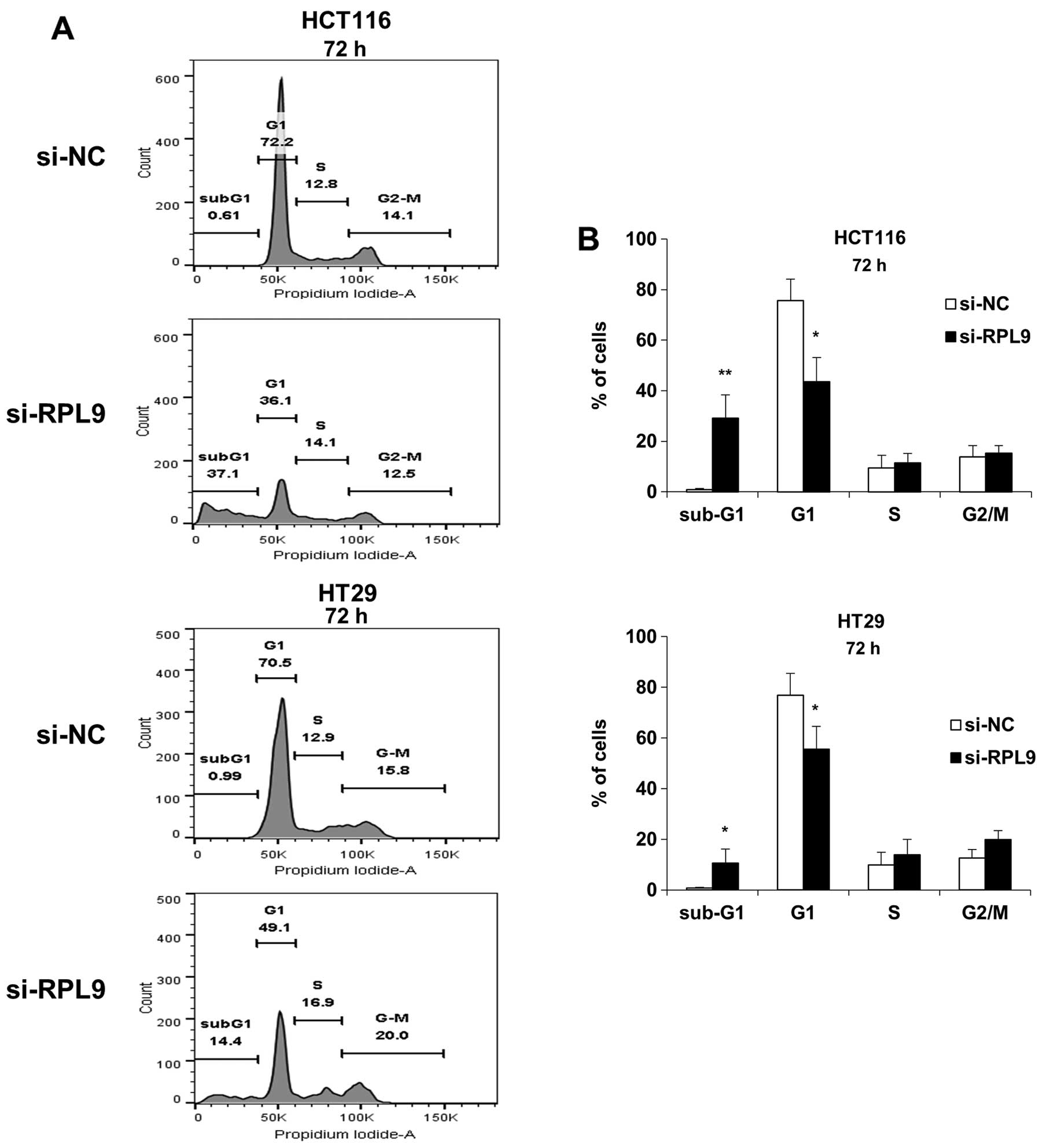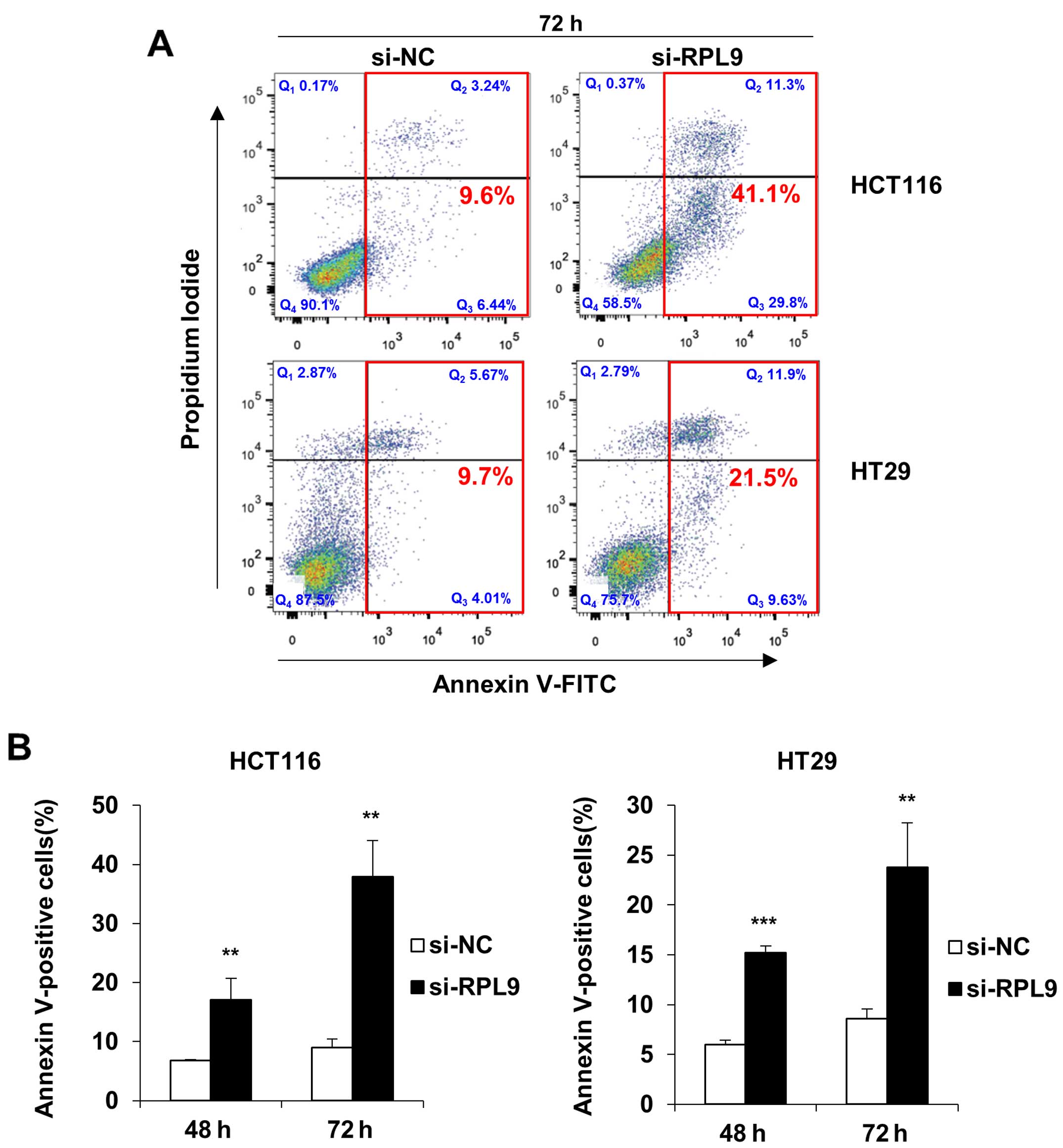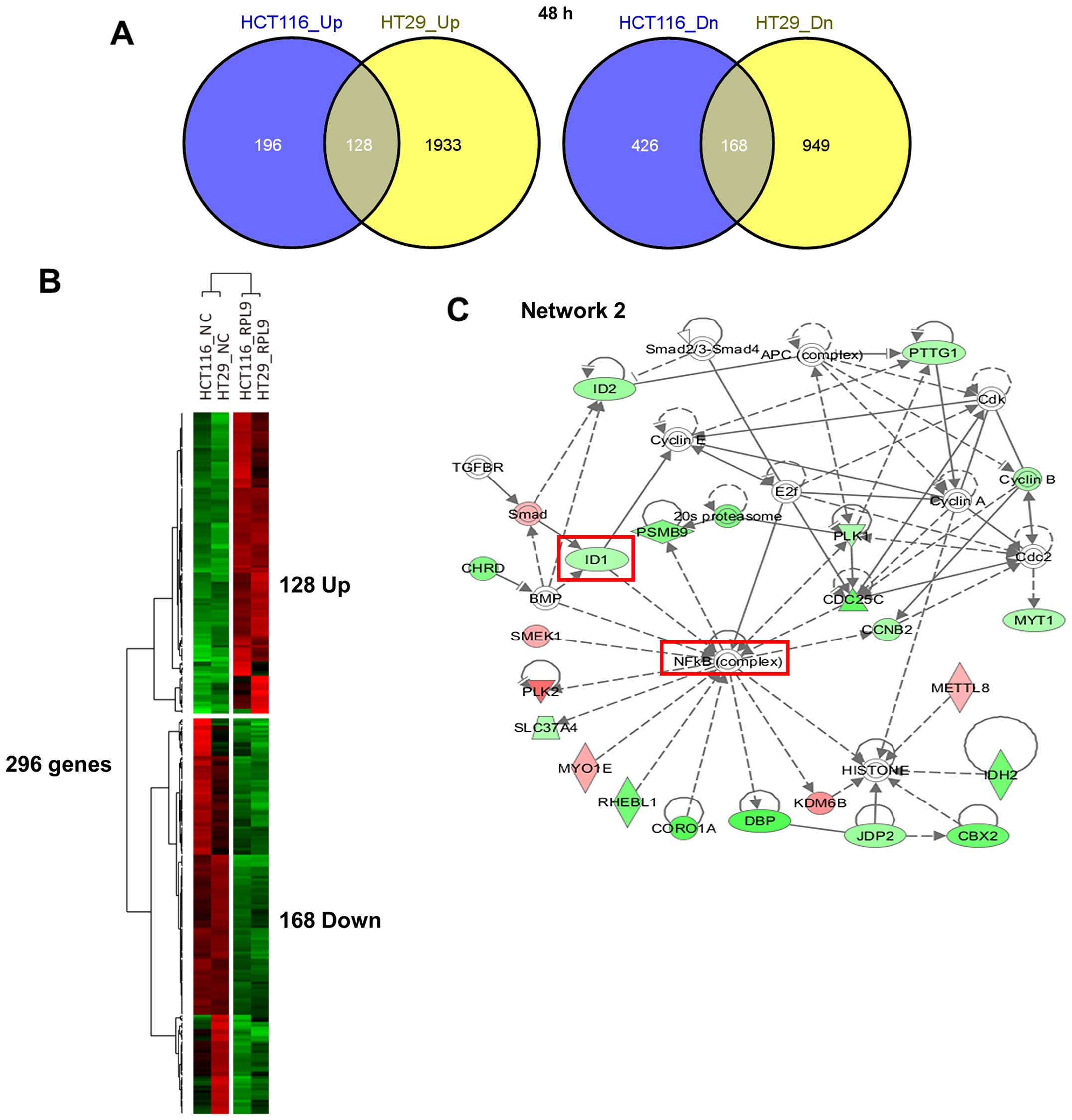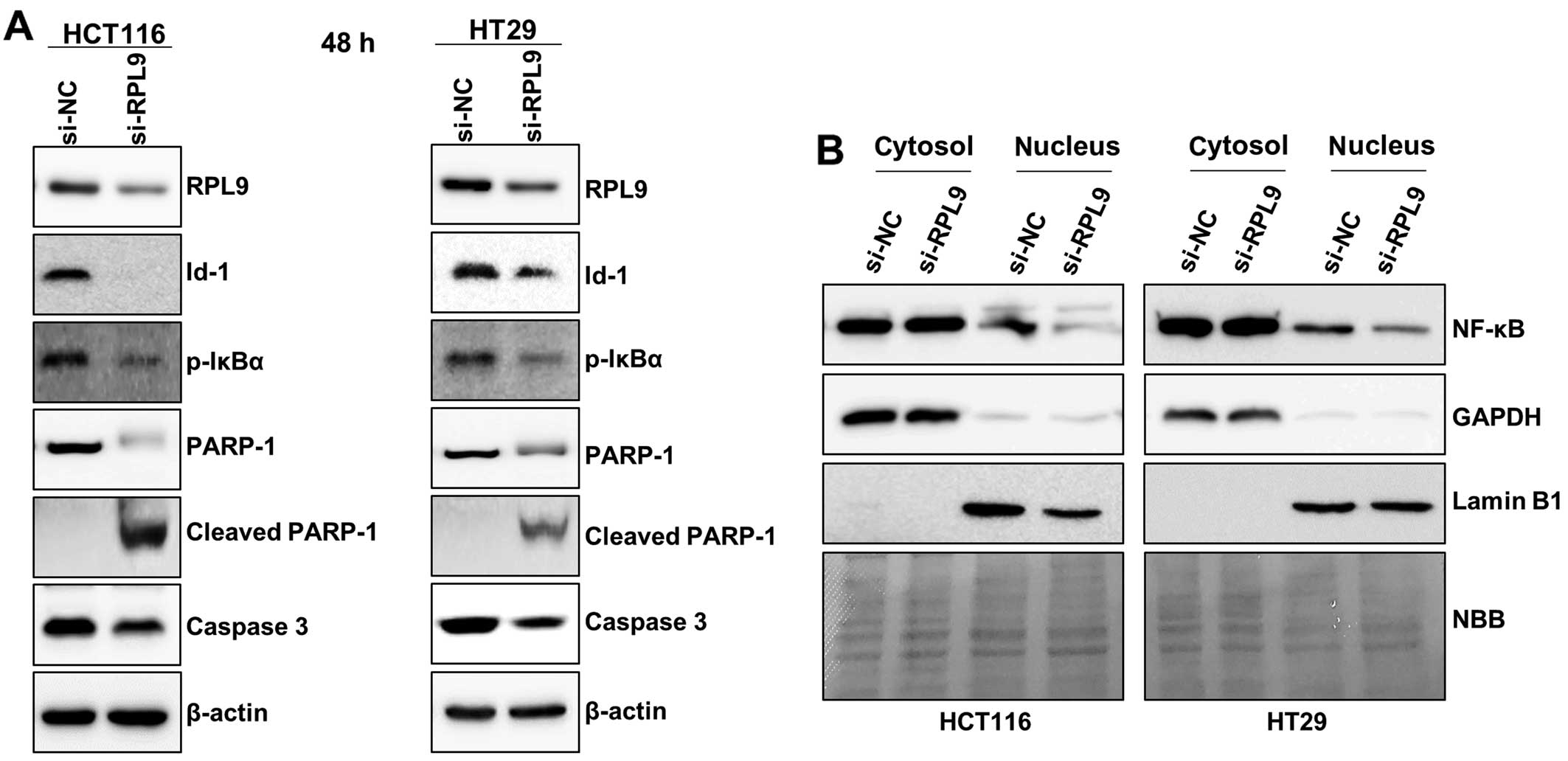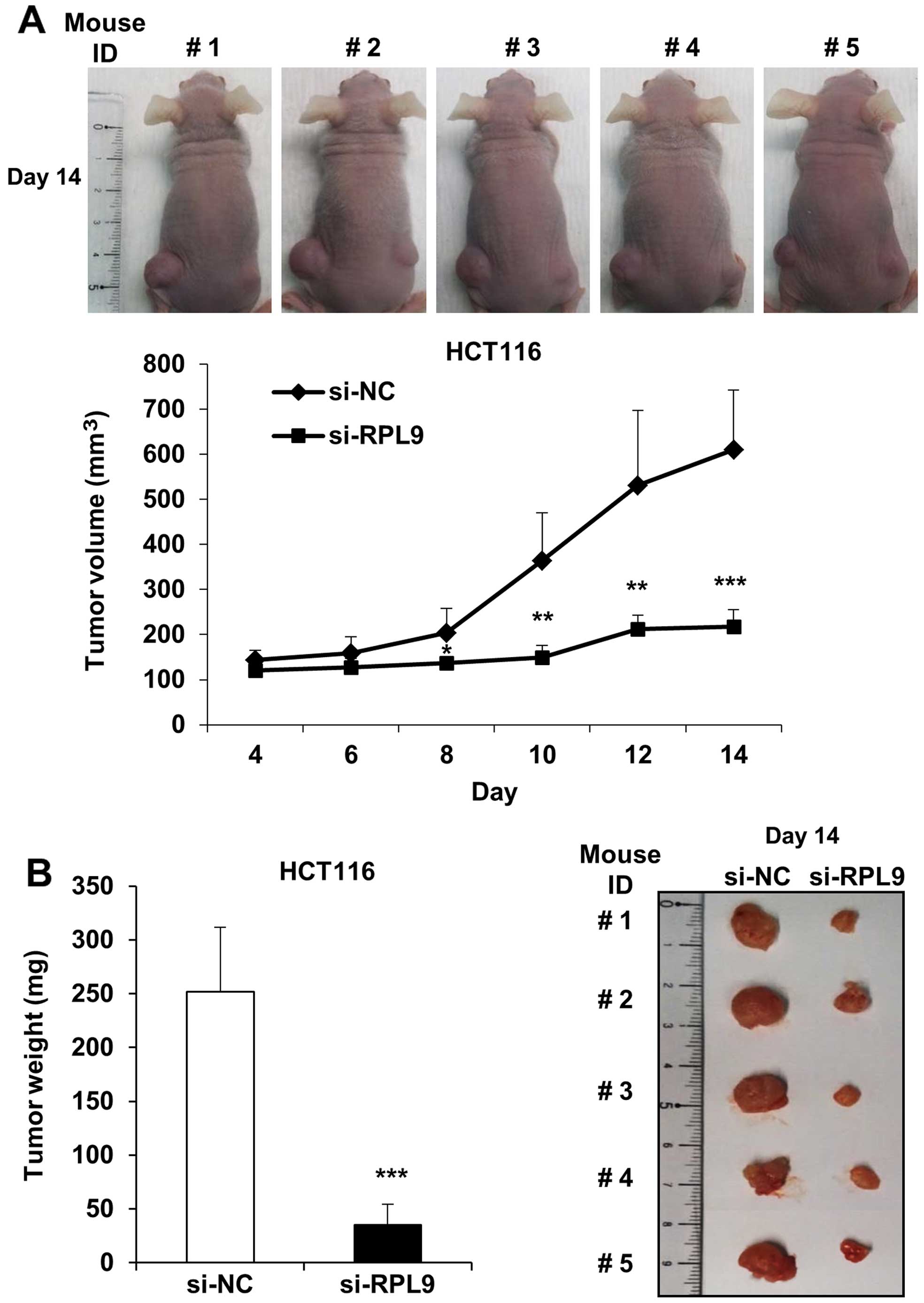|
1
|
Marmot SM, Atinmo T, Byers T, Chen J,
Hirohata T, Jackson A, James WPT, Kolonel L, Kumanyika S, et al:
Food, Nutrition, Physical Activity, and the Prevention of Cancer: A
Global Perspective. WCRF/AICR report. pp. 280–288. 2007
|
|
2
|
Benson AB III, Venook AP, Bekaii-Saab T,
Chan E, Chen YJ, Cooper HS, Engstrom PF, Enzinger PC, Fenton MJ,
Fuchs CS, et al; National Comprehensive Cancer Network. Colon
cancer, version 3.2014. J Natl Compr Canc Netw. 12:1028–1059.
2014.PubMed/NCBI
|
|
3
|
Sjöblom T, Jones S, Wood LD, Parsons DW,
Lin J, Barber TD, Mandelker D, Leary RJ, Ptak J, Silliman N, et al:
The consensus coding sequences of human breast and colorectal
cancers. Science. 314:268–274. 2006. View Article : Google Scholar : PubMed/NCBI
|
|
4
|
Taylor DJ, Devkota B, Huang AD, Topf M,
Narayanan E, Sali A, Harvey SC and Frank J: Comprehensive molecular
structure of the eukaryotic ribosome. Structure. 17:1591–1604.
2009. View Article : Google Scholar : PubMed/NCBI
|
|
5
|
Lai MD and Xu J: Ribosomal proteins and
colorectal cancer. Curr Genomics. 8:43–49. 2007. View Article : Google Scholar
|
|
6
|
Fisher EM, Beer-Romero P, Brown LG, Ridley
A, McNeil JA, Lawrence JB, Willard HF, Bieber FR and Page DC:
Homologous ribosomal protein genes on the human X and Y
chromosomes: Escape from X inactivation and possible implications
for Turner syndrome. Cell. 63:1205–1218. 1990. View Article : Google Scholar : PubMed/NCBI
|
|
7
|
Draptchinskaia N, Gustavsson P, Andersson
B, Pettersson M, Willig TN, Dianzani I, Ball S, Tchernia G, Klar J,
Matsson H, et al: The gene encoding ribosomal protein S19 is
mutated in Diamond-Blackfan anaemia. Nat Genet. 21:169–175. 1999.
View Article : Google Scholar : PubMed/NCBI
|
|
8
|
Warner JR and McIntosh KB: How common are
extraribosomal functions of ribosomal proteins? Mol Cell. 34:3–11.
2009. View Article : Google Scholar : PubMed/NCBI
|
|
9
|
Guo X, Shi Y, Gou Y, Li J, Han S, Zhang Y,
Huo J, Ning X, Sun L, Chen Y, et al: Human ribosomal protein S13
promotes gastric cancer growth through down-regulating
p27Kip1. J Cell Mol Med. 15:296–306. 2011. View Article : Google Scholar
|
|
10
|
Gou Y, Shi Y, Zhang Y, Nie Y, Wang J, Song
J, Jin H, He L, Gao L, Qiao L, et al: Ribosomal protein L6 promotes
growth and cell cycle progression through upregulating cyclin E in
gastric cancer cells. Biochem Biophys Res Commun. 393:788–793.
2010. View Article : Google Scholar : PubMed/NCBI
|
|
11
|
Yang HJ, Youn H, Seong KM, Jin YW, Kim J
and Youn B: Phosphorylation of ribosomal protein S3 and
antiapoptotic TRAF2 protein mediates radioresistance in non-small
cell lung cancer cells. J Biol Chem. 288:2965–2975. 2013.
View Article : Google Scholar :
|
|
12
|
Eid R, Sheibani S, Gharib N, Lapointe JF,
Horowitz A, Vali H, Mandato CA and Greenwood MT: Human ribosomal
protein L9 is a Bax suppressor that promotes cell survival in
yeast. FEMS Yeast Res. 14:495–507. 2014. View Article : Google Scholar
|
|
13
|
Zhang XL, Gao F, Li W, Tang WZ and Zhang
S: Serial analysis of gene expression in adenocarcinoma samples and
normal colonic mucosa in a Chinese population. Genet Mol Res.
14:12903–12911. 2015. View Article : Google Scholar : PubMed/NCBI
|
|
14
|
Sim EUH, Bong IPN, Balraj P, Tan SK, Jamal
R, Sagap I, Nadeson S, Rose IM and Lim PKM: A preliminary study of
differentially expressed genes in Malaysian colorectal carcinoma
cases. J Biosci. 17:19–37. 2006.
|
|
15
|
Lai X, Liao J, Lin W, Huang C, Li J, Lin
J, Chen Q and Ye Y: Inhibitor of DNA-binding protein 1 knockdown
arrests the growth of colorectal cancer cells and suppresses
hepatic metastasis in vivo. Oncol Rep. 32:79–88. 2014.PubMed/NCBI
|
|
16
|
Poon IK, Hulett MD and Parish CR:
Molecular mechanisms of late apoptotic/necrotic cell clearance.
Cell Death Differ. 17:381–397. 2010. View Article : Google Scholar
|
|
17
|
Meteoglu I, Meydan N and Erkus M: Id-1:
Regulator of EGFR and VEGF and potential target for colorectal
cancer therapy. J Exp Clin Cancer Res. 27:692008. View Article : Google Scholar : PubMed/NCBI
|
|
18
|
Ling MT, Wang X, Ouyang XS, Xu K, Tsao SW
and Wong YC: Id-1 expression promotes cell survival through
activation of NF-kappaB signalling pathway in prostate cancer
cells. Oncogene. 22:4498–4508. 2003. View Article : Google Scholar : PubMed/NCBI
|
|
19
|
Gilmore TD: Introduction to NF-kappaB:
Players, pathways, perspectives. Oncogene. 25:6680–6684. 2006.
View Article : Google Scholar : PubMed/NCBI
|
|
20
|
Aldridge GM, Podrebarac DM, Greenough WT
and Weiler IJ: The use of total protein stains as loading controls:
An alternative to high-abundance single-protein controls in
semi-quantitative immunoblotting. J Neurosci Methods. 172:250–254.
2008. View Article : Google Scholar : PubMed/NCBI
|
|
21
|
Romero-Calvo I, Ocón B, Martínez-Moya P,
Suárez MD, Zarzuelo A, Martínez-Augustin O and de Medina FS:
Reversible Ponceau staining as a loading control alternative to
actin in Western blots. Anal Biochem. 401:318–320. 2010. View Article : Google Scholar : PubMed/NCBI
|
|
22
|
Kondoh N, Shuda M, Tanaka K, Wakatsuki T,
Hada A and Yamamoto M: Enhanced expression of S8, L12, L23a, L27
and L30 ribosomal protein mRNAs in human hepatocellular carcinoma.
Anticancer Res. 21(4A): 2429–2433. 2001.PubMed/NCBI
|
|
23
|
Yang S, Cui J, Yang Y, Liu Z, Yan H, Tang
C, Wang H, Qin H, Li X, Li J, et al: Over-expressed RPL34 promotes
malignant proliferation of non-small cell lung cancer cells. Gene.
576:421–428. 2016. View Article : Google Scholar
|
|
24
|
Khanna N, Sen S, Sharma H and Singh N: S29
ribosomal protein induces apoptosis in H520 cells and sensitizes
them to chemotherapy. Biochem Biophys Res Commun. 304:26–35. 2003.
View Article : Google Scholar : PubMed/NCBI
|
|
25
|
Naora H and Naora H: Involvement of
ribosomal proteins in regulating cell growth and apoptosis:
Translational modulation or recruitment for extraribosomal
activity? Immunol Cell Biol. 77:197–205. 1999. View Article : Google Scholar : PubMed/NCBI
|
|
26
|
Bee A, Brewer D, Beesley C, Dodson A,
Forootan S, Dickinson T, Gerard P, Lane B, Yao S, Cooper CS, et al:
siRNA knockdown of ribosomal protein gene RPL19 abrogates the
aggressive phenotype of human prostate cancer. PLoS One.
6:e226722011. View Article : Google Scholar : PubMed/NCBI
|
|
27
|
Zhao ZR, Zhang ZY, Zhang H, Jiang L, Wang
MW and Sun XF: Overexpression of Id-1 protein is a marker in
colorectal cancer progression. Oncol Rep. 19:419–424.
2008.PubMed/NCBI
|
|
28
|
Lin CQ, Singh J, Murata K, Itahana Y,
Parrinello S, Liang SH, Gillett CE, Campisi J and Desprez PY: A
role for Id-1 in the aggressive phenotype and steroid hormone
response of human breast cancer cells. Cancer Res. 60:1332–1340.
2000.PubMed/NCBI
|
|
29
|
Ouyang XS, Wang X, Lee DT, Tsao SW and
Wong YC: Over expression of ID-1 in prostate cancer. J Urol.
167:2598–2602. 2002. View Article : Google Scholar : PubMed/NCBI
|
|
30
|
Schindl M, Oberhuber G, Obermair A,
Schoppmann SF, Karner B and Birner P: Overexpression of Id-1
protein is a marker for unfavorable prognosis in early-stage
cervical cancer. Cancer Res. 61:5703–5706. 2001.PubMed/NCBI
|
|
31
|
Li B, Cheung PY, Wang X, Tsao SW, Ling MT,
Wong YC and Cheung AL: Id-1 activation of PI3K/Akt/NFkappaB
signaling pathway and its significance in promoting survival of
esophageal cancer cells. Carcinogenesis. 28:2313–2320. 2007.
View Article : Google Scholar : PubMed/NCBI
|
|
32
|
Vlahopoulos SA, Cen O, Hengen N, Agan J,
Moschovi M, Critselis E, Adamaki M, Bacopoulou F, Copland JA,
Boldogh I, et al: Dynamic aberrant NF-κB spurs tumorigenesis: A new
model encompassing the microenvironment. Cytokine Growth Factor
Rev. 26:389–403. 2015. View Article : Google Scholar : PubMed/NCBI
|
|
33
|
Broers JL and Ramaekers FC: The role of
the nuclear lamina in cancer and apoptosis. Adv Exp Med Biol.
773:27–48. 2014. View Article : Google Scholar : PubMed/NCBI
|
|
34
|
Goldman RD, Gruenbaum Y, Moir RD, Shumaker
DK and Spann TP: Nuclear lamins: Building blocks of nuclear
architecture. Genes Dev. 16:533–547. 2002. View Article : Google Scholar : PubMed/NCBI
|















